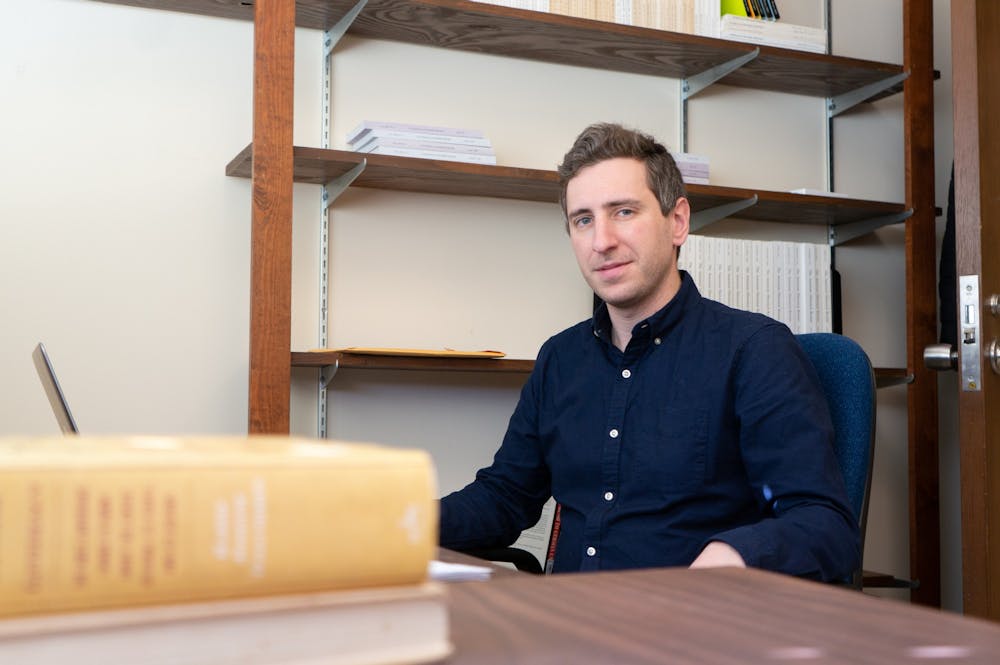University Response
In November, then-interim Chancellor Kevin Guskiewicz issued a statement referencing the agreement UNC reached with the Office for Civil Rights of the U.S. Department of Education following a complaint submitted about the Conflict over Gaza conference, hosted by UNC and Duke University.
In his message, Guskiewicz reaffirmed the University’s commitment to fostering an environment free of anti-Semitism and all types of discrimination and harassment. Last fall, the University launched its “Countering Hate: Overcoming Fear of Differences” initiative as a way of responding to the presence of racism, anti-Semitism and Islamophobia on UNC’s campus.
“One way to prevent or counter antisemitism, I think, is to teach about Jewish culture,” Ruth von Bernuth, director of the Carolina Center for Jewish Studies said. “I think if you only concentrate on anti-Judaism or anti-Semitism, you won’t actually understand what Jewish culture in history was and is nowadays. I think that’s something the Center has done in the past and should continue to do moving forward.”
Max Lazar, a sixth year Ph.D. student in the Department of History, will be teaching a class called “Confronting Antisemitism" in the spring semester — along with various faculty members and guest speakers throughout the course. He said many Jewish students on campus expressed interest in creating a course that would address the issue of anti-Semitism.
He said he hopes to help students understand the complexities and manifestations of anti-Semitism, as well as inspire them to think of ways the University can combat anti-Semitism moving forward.
“Regardless of the order, I think universities should be protective of all ethnic, religious, minority, gender-oriented, culturally-oriented groups,” Ariel said. “There should be full freedom of expression to groups that respect the law and are part of our community. I’d like to see Jewish life on campus thrive freely and my sense is that the University has been supportive of that.”
Interpreting Judaism
The Trump Administration maintains that the order will help minimize the extent of anti-Semitic harassment facing Jewish individuals within educational institutions.
To do so, the administration equates Judaism to a race or nationality — that is, not just as a religious identity — in its order so that discrimination against Jews can be protected by Title VI of the Civil Rights Act of 1964.
With the Trump administration’s new interpretation of Judaism as a race or nationality, discrimination against Jews may now be considered a violation of Title VI, jeopardizing federally funded educational institutions that host forms of anti-Semitic discrimination.
For some, this interpretation is problematic.
To get the day's news and headlines in your inbox each morning, sign up for our email newsletters.
“As someone who is Jewish and my own scholarly background focused on German Jews and a lot of Holocaust history, I have always been wary of any idea to list Jews as a racial group seeing as that was something of how the Nazis were able to discriminate Jews within the Third Reich when they were in power,” said Lazar.
Yaakov Ariel, a professor in the Department of Religious Studies, agreed and said the political realities of the government definition are less important than the connections it makes to late Jewish history and culture.
But Lazar said that it is still interesting to approach modern Judaism with the understanding that many modern Jews identify with their Judaism in different ways.
For Ariel, Judaism cannot be confined to one definition and should instead be left to an individual to decide if they themselves are Jewish.
“I don’t see any reason to doubt that (self-declaration),” Ariel said. “I think that in our time, there are a thousand ways of being Jewish. It cannot be restricted by one definition, it is what you make of it. It is what you decide, it’s what you choose.”
Interpreting anti-Semitism
Many critics of the executive order claim that the definition of anti-Semitism prevents free speech from occurring on college campuses because it too broadly defines opposition toward the State of Israel and pro-Palestinian efforts as discriminatory. Moreover, some suggest that the definition is being weaponized by the right wing for political purposes to stifle anti-Israeli opposition.
One such critic is Kenneth Stern, director of the Bard Center for the Study of Hate, who spoke at UNC last November as part of the University's Countering Hate initiative.
Stern helped create the definition of anti-Semitism 15 years ago that was used in the executive order. He claims it was “never intended to be a campus hate speech code...” as part of President Trump’s executive order.
Von Bernuth agreed.
"I think there should be a place where the study of Israel should be allowed — like every other country," von Bernuth said. "The study of Israel is separate from reference to Jews and anti-Semitic thought. The new policy could be a threat to academic freedom and academic speech."
Although Lazar sees merit in both sides of the argument, he pointed out the State Department included a clause that could protect free speech. Such a clause suggests that critiques of Israel similar to critiques wielded toward countries cannot be considered anti-Semitic.
“This clause could potentially mitigate against anyone trying to weaponize this language or definition to stifle free speech, especially in regards to people that are calling for greater Palestinian rights and people that are engaged in legitimate criticisms of the state of Israel too,” Lazar said.
@evelyaforte
university@dailytarheel.com



